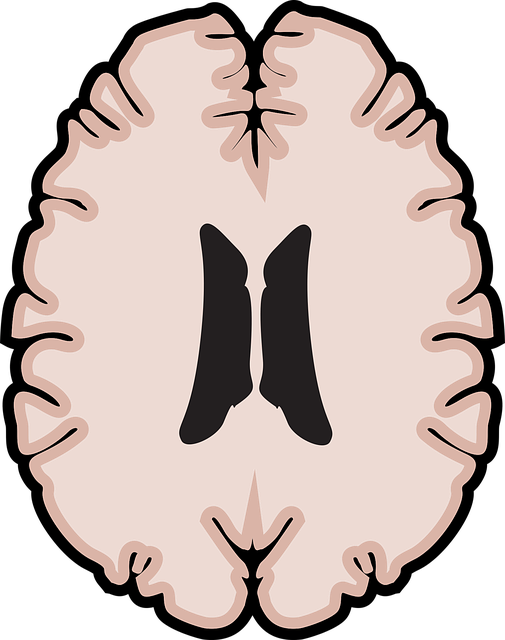Burnout among healthcare providers is a growing concern, characterized by decreased job satisfaction, exhaustion, cynicism, and physical symptoms like headaches and sleep disturbances. Effective strategies include self-care practices such as mindfulness meditation, emotional intelligence training, community outreach, and therapy focused on self-esteem. Regular therapeutic sessions empower medical professionals to manage stress, process emotions healthily, and set boundaries, fostering a positive work environment. Open communication, mindfulness, and compassion cultivation techniques further enhance resilience and cope with stress, benefiting both practitioners and patients. Integrating therapy for adults with low self-esteem tailored to healthcare settings combats burnout, improves job satisfaction, and enhances overall well-being.
Healthcare provider burnout is a growing concern, impacting both practitioner well-being and patient care. This article explores comprehensive strategies to prevent burnout among healthcare workers. We delve into recognizing early signs and symptoms, emphasizing self-care practices for mental and physical resilience. Effective communication strategies are highlighted to foster work-life balance. Additionally, we discuss integrating therapy for adults with low self-esteem within healthcare settings, offering a holistic approach to mitigate burnout and enhance professional satisfaction.
- Recognizing Burnout in Healthcare Providers: Early Signs and Symptoms
- Self-Care Practices for Mental and Physical Resilience
- Effective Communication Strategies to Enhance Work-Life Balance
- Integrating Therapy for Adults with Low Self-Esteem in Healthcare Settings
Recognizing Burnout in Healthcare Providers: Early Signs and Symptoms

Burnout among healthcare providers is a growing concern, but recognizing its signs early can be life-saving. Often subtle at first, burnout manifests as a decline in job satisfaction and performance. Healthcare workers might experience persistent feelings of exhaustion, cynicism, and detachment from their work and patients. They may also notice increased irritability, anxiety, or depression, along with physical symptoms like chronic headaches or sleep disturbances. These early signs should not be overlooked, as they can lead to more severe consequences if left unaddressed.
One effective strategy for preventing burnout is incorporating self-care practices such as mindfulness meditation and emotional intelligence training. These tools empower healthcare providers to manage stress, maintain a positive outlook, and build resilience. Additionally, participating in community outreach programs can provide a sense of purpose beyond work, fostering connections with the communities they serve. Such initiatives not only benefit individuals but also enhance patient care and overall well-being within healthcare organizations.
Self-Care Practices for Mental and Physical Resilience

Healthcare providers, like all individuals, require a robust self-care routine to maintain mental and physical resilience. Integrating therapeutic practices for adults focused on self-esteem can significantly enhance their ability to cope with work-related stress. Regular therapy sessions provide a safe space to process emotions, set personal boundaries, and develop effective coping mechanisms. This, in turn, fosters better mood management and boosts overall well-being.
Self-care initiatives within healthcare organizations, such as Stress Management Workshops, play a pivotal role in stigma reduction efforts related to mental illness. These workshops can equip providers with tools to manage stress, improve work-life balance, and foster a supportive environment where mental health is prioritized. By adopting comprehensive self-care practices, healthcare professionals can not only prevent burnout but also enhance patient care by bringing their best selves to the clinical setting.
Effective Communication Strategies to Enhance Work-Life Balance

In today’s demanding healthcare landscape, effective communication strategies are crucial for professionals seeking to enhance their work-life balance and prevent burnout. By prioritizing open dialogue and active listening, providers can better manage patient expectations, streamline workflows, and foster a supportive environment. This not only improves job satisfaction but also contributes to the overall well-being of both practitioners and their patients.
One such strategy is incorporating coping skills development through practices like mindfulness meditation and compassion cultivation. These techniques empower adults to navigate stress, improve self-esteem, and maintain resilience in challenging situations. For instance, regular mindfulness meditation can help healthcare workers cultivate a sense of calm, enabling them to approach interactions with greater clarity and empathy, thereby enriching both their professional and personal lives.
Integrating Therapy for Adults with Low Self-Esteem in Healthcare Settings

Integrating therapy for adults with low self-esteem into healthcare settings is a crucial step in addressing burnout and enhancing provider well-being. Many healthcare professionals, particularly those on the front lines, often struggle with feelings of inadequacy, which can significantly impact their performance and job satisfaction. Therapy tailored to boost self-esteem and address underlying insecurities can provide much-needed support. This approach not only helps individuals gain a healthier perspective but also equips them with coping strategies to navigate challenging situations more effectively.
By incorporating therapy sessions into healthcare routines, professionals can access valuable tools such as social skills training, confidence-boosting exercises, and crisis intervention guidance. These interventions can foster a sense of resilience, enabling providers to better manage stress and maintain work-life balance. As a result, healthcare facilities that prioritize employee mental health are likely to experience lower burnout rates and improved overall service quality.
Healthcare provider burnout is a pressing issue, but by implementing these evidence-based strategies, including self-care practices, effective communication, and integrating therapy for adults with low self-esteem, healthcare organizations can foster a healthier work environment. These approaches not only promote mental and physical resilience but also enhance work-life balance, ensuring healthcare providers can continue to deliver quality care with renewed passion and purpose.














